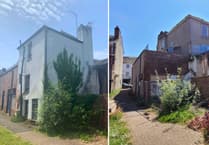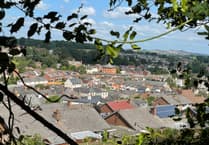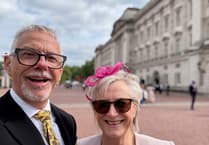LAST week, a video was doing the rounds – it’s a clip from a recorded Parish Council meeting in Handforth, Cheshire.
The clerk, Jackie Weaver, had stepped in from the Cheshire Association of Local Councils to support the Parish Council. But the meeting soon descended into chaos, with insults flying, people shouting, and members being booted out of the meeting on account of their bad behaviour.
Jackie Weaver remained calm and patient throughout. (In the ward I represent as a District Councillor, I’m grateful to work alongside Parish Councils that thankfully conduct business and treat each other rather differently to Handforth Parish Council!).
Since the clip emerged, it has been sent on to me many times, along with comments and questions about whether the clip was really reflective of local council life; or expressing shock at the bullying and bad behaviour that was apparent (and which Jackie Weaver has subsequently touched on in an interview with Radio 4).
A few things have come to mind: Firstly, the bad behaviour on display in the clip is not an isolated incident. Having spoken to Councillors at various tiers of local government across the country, some behaviours (condescension, arrogance, non-listening, even aggression) seem deeper rooted; at times almost part of the culture.
This culture gets in the way of meaningful outcomes. As long as bad behaviour and bullying exists anywhere, the whole is made weaker.
As Jackie Weaver said in a recent interview, lots of people locally and nationally are working to change the culture, and there are thankfully many brilliant people in local government – officers and elected members – who we can look to as role models.
Secondly, local government is an important method of engagement with local community. It is the tier of government with which people should be able to easily share their concerns and ideas, or ask for help.
Local government is not glamourous. It is underfunded, and can feel inefficient and frustrating. But we can still reflect, and ask how to create a culture that is best suited to walking alongside citizens; to providing efficient and responsive services; to creating meaningful change.
We can only do this on a foundation of good relationships, listening, respect and inclusion. Last year, my colleague and I submitted a “motion” to Mid Devon District Council that aimed to open up discussion about these things.
Lastly, as Jackie Weaver said: “There would have been a certain pleasure in fighting the argument... but I was focused on supporting the ordinary, often dull business of a parish council.”
Engaging in an argument can provide a short-lived personal satisfaction but doesn’t often help us achieve our goals. Focus, vision and discussion does.
In that discussion, we need diverse thoughts and opinions – as William Blake said: “without contraries is no progression.”
We must seek out stories we may not want to hear and opinions we may not agree with.
But pursuing and doing what’s right becomes easier when the way we conduct ourselves allows those contraries to be discussed, understood and synthesised; when relationship is strengthened by it – not fragmented by it.
With the May local elections around the corner for some places, including some by-elections in Mid Devon, engaging in that “ordinary, often dull business” of local government – perhaps even working to make it less dull and more engaging – feels vital. Because as long as we have freedom to speak our minds, we also have a duty to engage, to respect and to listen.
Really listening to others is the kind of daily civic work that strengthens our democracy and society.
It’s what local government and its elected members are well-positioned to do. Listening gives meaning and purpose to speech, and gives dignity to everyone.
It’s how we find common ground; how we heal divides and build bridges – as well as houses, roads, and other services. Imagine government at all tiers as a place where this becomes real – especially in the context of challenges like a post-Covid recovery, and a climate and biodiversity in crisis.
There is still work to be done if that viral Parish Council video is anything to go by – but with vision and focus, listening and relationship (supported by proper funding) I think it’s possible.
In other news – I’m pleased that Mid Devon District Council has just received a grant of over £300k to decarbonise its leisure centres. As well as helping us reach our climate goals, it will save the Council £40-£50,000 in energy bills each year.





Comments
This article has no comments yet. Be the first to leave a comment.